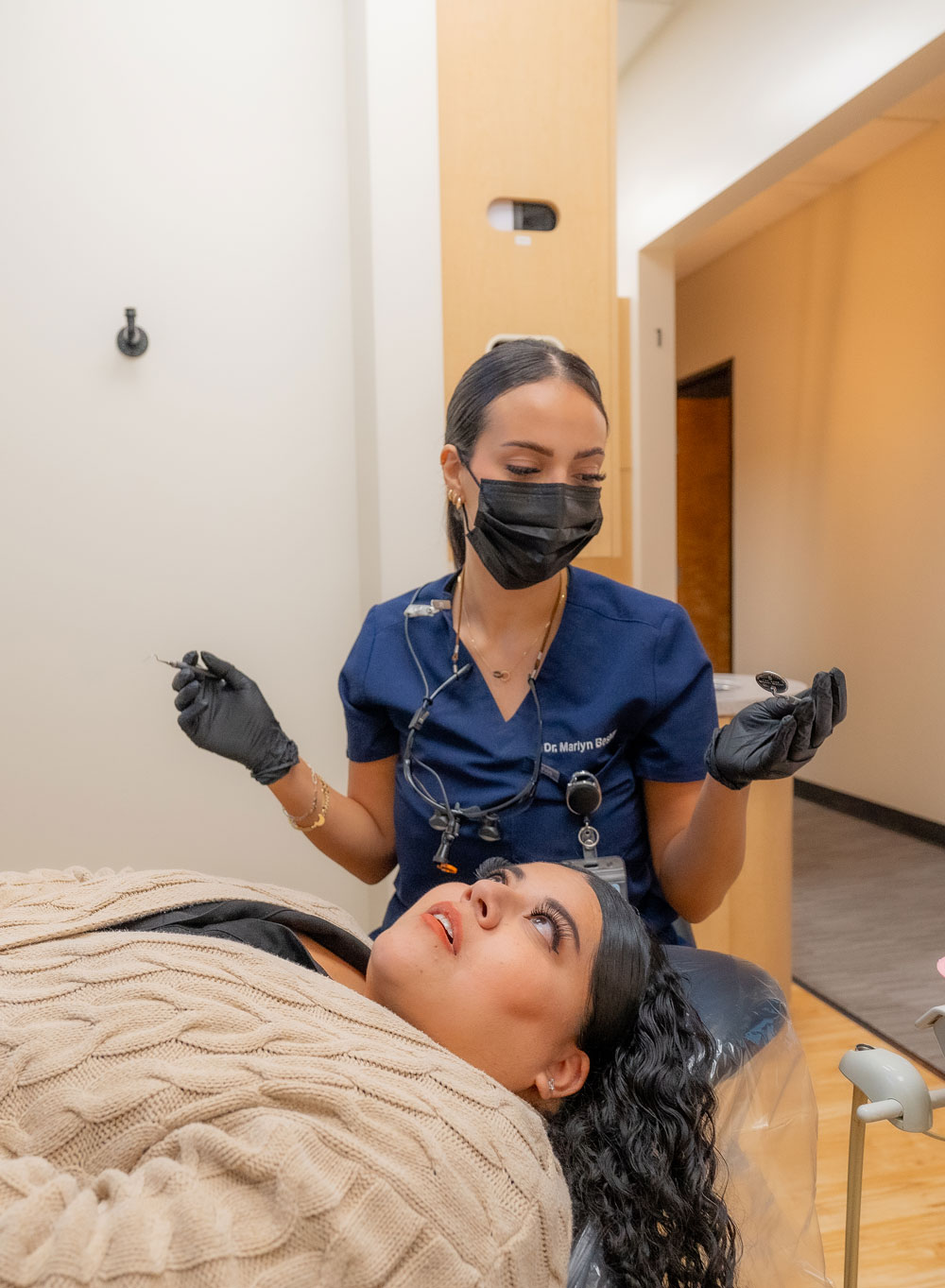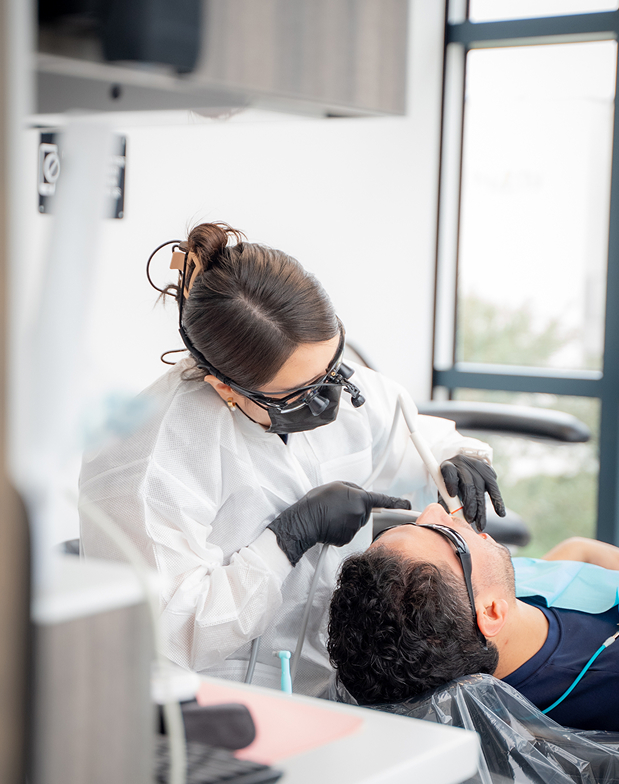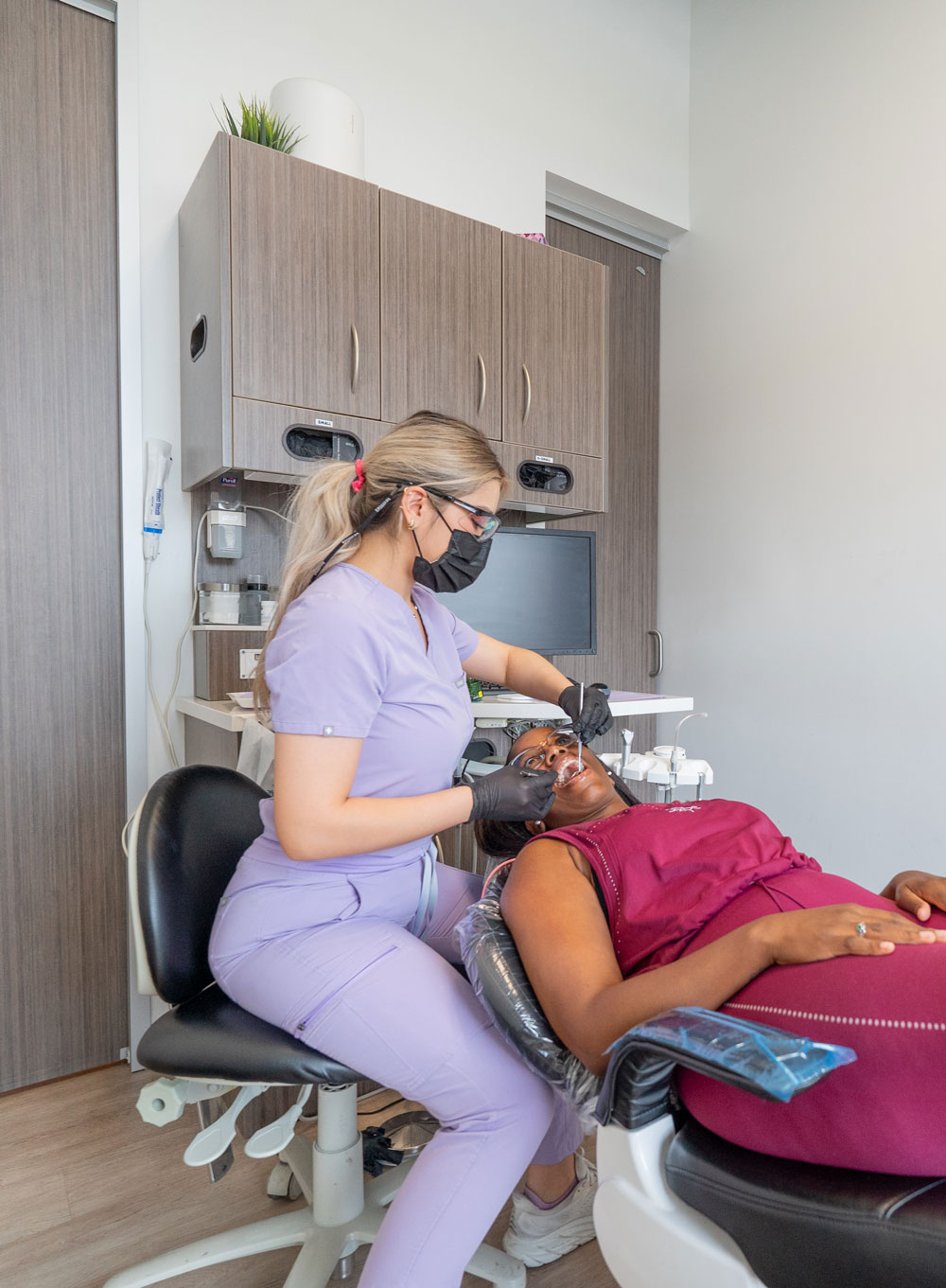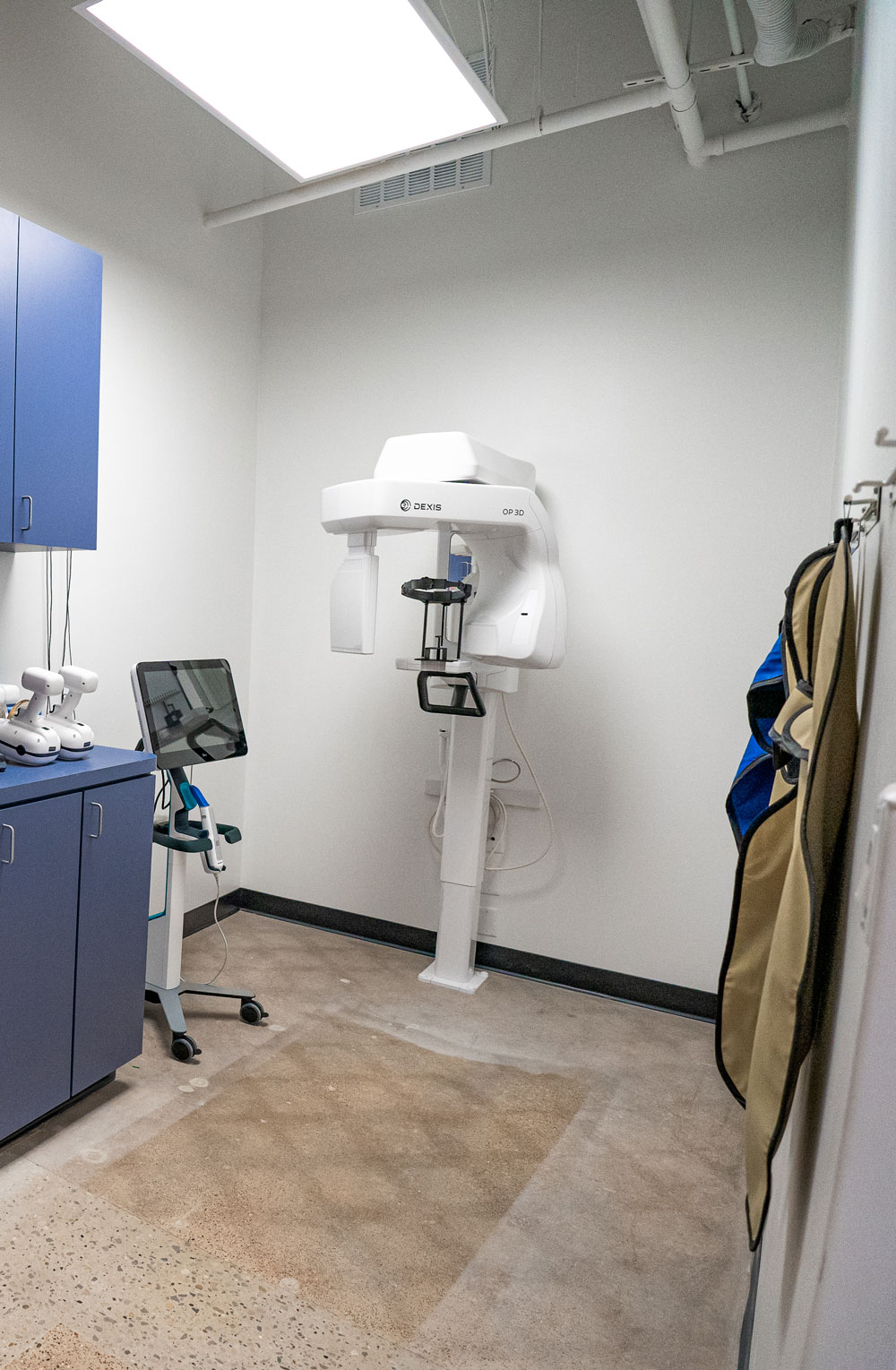A filling, also called dental tooth fillings, is a type of restorative dentistry used to restore a decayed or damaged tooth structure to its normal shape and function. When you visit your dentist for a front tooth cavity filling procedure, your dentist removes the decayed tooth material, cleans the affected tooth parts, and finally fills the cleaned area with a filling material.
A front tooth filling can help to prevent further dental decay by sealing off spaces where bacteria can penetrate. There are different materials used for dental fillings. These include silver amalgam filling, gold fillings, composite fillings (tooth-colored fillings), porcelain fillings, etc.


Every patient may require a different type of filling for their dental condition, so no particular type is for every patient. The type of cavity dental filling that is for you will depend on the following factors – the extent of your dental case, the part of your mouth where the filling is needed, your allergy to specific materials, and the cost involved in using each type of filling.
A dental crown or cap may be recommended if a large portion of the tooth is damaged due to a fracture or cavity between teeth. And in the case of severe dental decay in the tooth nerve, the dentist may administer two types of treatment: root canal therapy, which involves removing the damaged nerve, and pulp capping procedures, which helps keep the nerve. If you are suffering from cavities on front teeth, you can contact us directly through our website and book an appointment to treat your cavity and enjoy the perfect smile that you wish to have.
Our patients love treatment at our locations consistent 5-star ratings across the board.
See what they have to say about our dentists and dental team.












If your dental condition requires filling a cavity on front tooth, the following procedures will be followed. Your dentist removes the decayed tooth material, then cleans the affected tooth parts, and finally fills the cleaned affected area with any of the appropriate filling materials listed above.
You may not be able to tell when you need a dental filling, but your dentist can detect whether you need a dental filling or not. When you go for a dental check-up, your dentist examines the surface of each tooth using a small mirror to tell if you need a dental filling.
If your dentist notices anything abnormal, they will check closely using special instruments. Your dentist may have to X-ray a section of your mouth or entire mouth to determine the proper treatment. The type of treatment your dentist chooses may depend on the extent of tooth damage caused by cavities in between teeth.


Since dental fillings are more of restorative dentistry than cosmetic dentistry, it is covered by most dental insurance plans. Most insurance companies cover the cost of dental fillings up to the price of the filling, then the patient has to pay for the rest.
Sometimes, a patient may not have enough tooth structure to support a filling, and if the tooth is not so damaged that a dental crown is required, an indirect filling may be used. Indirect fillings are very similar to composite fillings (tooth-colored fillings). Still, they are made in the lab and require only two dental appointments to be placed.
Indirect fillings for cavities in front teeth come in 2 types: inlays and onlays. Inlays are similar to dental fillings, but the entire dental works lie within bumps on the tooth’s upper surface.
Onlays, however, are more like partial crowns and are more extensive than inlays. Onlays cover one or more bumps.
Indirect fillings are more durable and last longer than conventional dental fillings – about 30 years. Indirect fillings can be gold, porcelain, or tooth-colored composite resin. However, inlays and onlays weaken the tooth structure, unlike traditional dental fillings.
Contact Dentist Open On Saturday today to learn more about dental fillings and determine if you need dental fillings.
Conveniently located in the heart of Houston Texas —
Find Your Closest URBN Dental Office Today.
URBN Dental Implants &
Invisalign | Uptown
Address: 2400 Mid Ln #350,
Houston, TX 77027, United States
Phone: (713) 322-8442
Fax: (281) 516-8296
URBN Dental Implants &
Invisalign | Midtown
Address: 3510 Main St Ste E, Houston, TX 77002, United States
Phone: (346) 712-1946
Fax: (281) 720-8002
URBN Dental Implants &
Invisalign | Montrose
Address: 3201 Allen Pkwy Ste #E200,
Houston, TX 77019, United States
Phone: (281) 826-1917
Fax: (281) 404-7444
URBN Dental Implants &
Invisalign | CityCentre
Address: 803 W Sam Houston Pkwy N #124, Houston, TX 77024, United States
Phone: (281) 843-5814
Fax: (281) 727-0104
URBN Dental Implants &
Invisalign | Katy
Address: 94 W Grand Pkwy S Suite 240, Katy, TX 77494, United States
Phone: (832) 224-2174
Fax: (832) 913-3248
URBN Dental Implants &
Invisalign | Heights
Address: 714 Yale St 2Z,
Houston, TX 77007, United States
Phone: (281) 843-5897
Fax: (281) 652-5021
URBN Dental Implants &
Invisalign | East River
Address: 2921 Riverby Road, Suite 110 Houston, TX 77020
Phone: (832) 376-8438
Fax: (281) 652-5027
URBN Dental Implants &
Invisalign | Spring Branch
Address: 8143 Long Point Rd,
Houston, TX 77055, United States
Phone: (832) 306-3510
Fax: (281) 888-0639
URBN Dental Implants &
Invisalign | Tanglewood
Address: 6363 San Felipe St #200b,
Houston, TX 77057, United States
Phone: (281) 549-5100
Fax: (281) 407-6185
URBN Dental Implants &
Invisalign | West U
Address: 5578 Weslayan St,
Houston, TX 77005, United States
Phone: (281) 219-8971
Fax: (713) 263-3326
URBN Dental Implants &
Invisalign | Meyerland
Address: 450 Meyerland Plz, Houston, TX 77096, United States
Phone: (346) 483-3337
Fax: (281) 727-0408
URBN Dental Implants &
Invisalign | NASA Pkwy
Address: 1840 E NASA Parkway Houston, Texas 77058, United States
Phone: (281) 969-3514
Fax: (281) 969-3524
OPENING SOON
URBN Dental Implants &
Invisalign | Sienna
Address: 5310 Sienna Pkwy #220 Missouri City, TX 77459, United States
Phone: (281) 969-3491
Fax: (281) 969-3481
OPENING SOON
URBN Dental Implants &
Invisalign | Pearland
Address: 12567 Broadway Street, Suite 129, Pearland, Texas 77584, United States
OPENING SOON
URBN Dental Implants &
Invisalign | Cinco Ranch
Address: 1645 South Fry Road, Suite No. 1000, Katy, Texas 77494, United States
OPENING SOON

© Copyright 2026 | Designed & SEO Optimized by The Doctors Marketing | Privacy Policy | Terms & Conditions | HIPAA